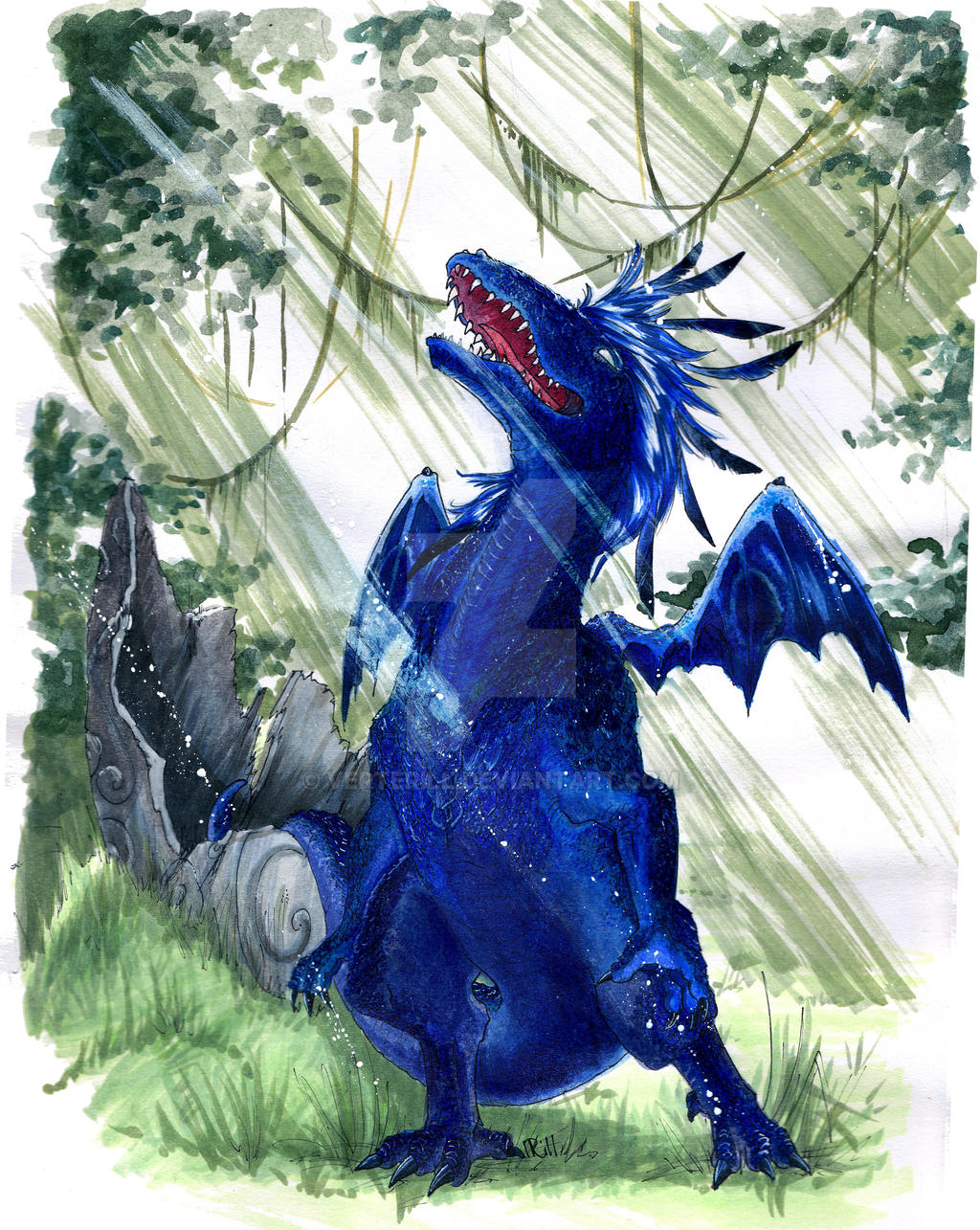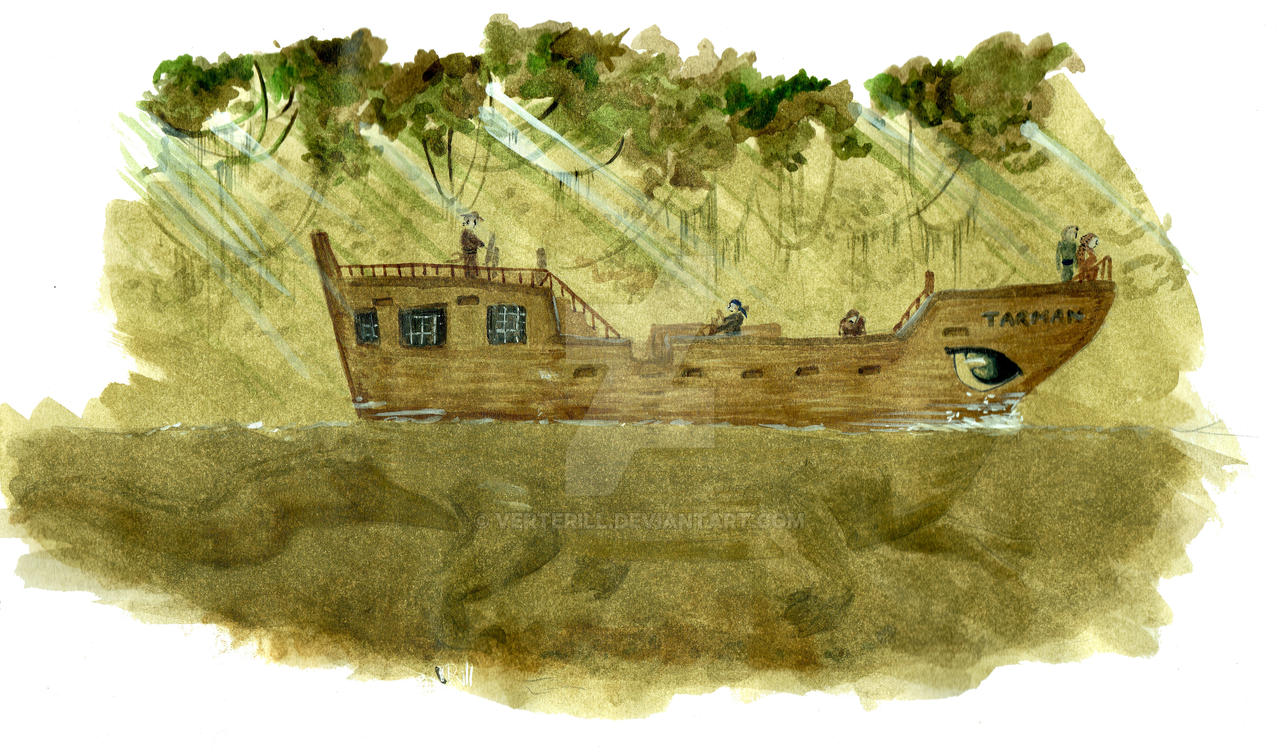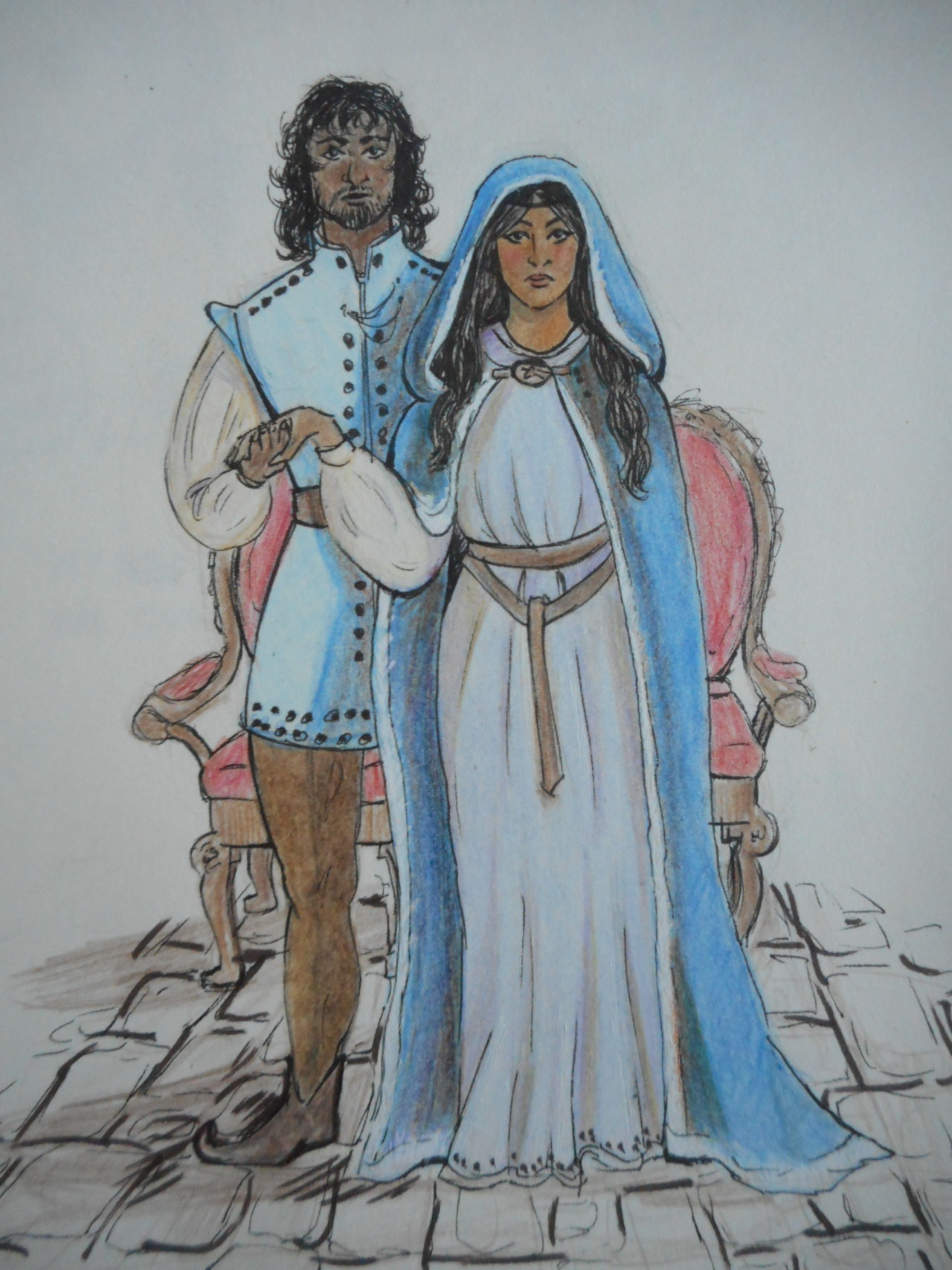Read the previous entry in the series here.
Read the next entry in the series here.
Content warning: sexual assault
A chapter titled “Blackmail and Lies” follows, opening after a series of missives between bird-messengers that trace economic developments and betray some reactionary attitudes on the parts of the bird-keepers. Leftirn receives cargo from a Chalcedean ship at the mouth of the Rain Wild River and rehearses his situation.

Winterkeep’s Rain Wild River Map on DeviantArt, used for commentary.
Leftrin and the Chalcedean merchant dicker, the latter trying to trade for wizardwood or other dragon-parts and rebuffed in that line by Leftrin. The two withdraw to Leftrin’s cabin to negotiate fuller terms, and the Chalcedean, Sinad of the Arich lineage, tries to secure exclusive trade arrangements and to gather Elderling goods. Sinad also tries to bargian for passage up the river, having papers permitting his passage, and Leftrin frets about how his alterations to the Tarman have become known. Sinad lays out his situation: the ruler of Chalced seeks a cure for his age and infirmity, and the families of Chalcedean traders are held as collateral against their pursuit thereof, so Sinad holds coin and the maintenance of Leftrin’s secrets as collateral against his upriver travel.
In Bingtown, Alise waits at table to confront Hest, their strained marriage rehearsed after he violates her. She rehearses her evidence of his infidelity and challenges Hest with it when he arrives, only to have him explain away all the evidence, confirmed by Sedric. Ashamed, Alise apologizes for her presumption and withdraws.
Elsewhere, Sintara dreams of flight as she struggles in the mud of the swamps along the Rain Wild River and reviews her generations memories against her current situation. She and the other dragons are maintained, but not well, and not as they think befits them. They confer with one another, their diminished numbers and stature detailed, including predations of humans upon them when they attempt to leave. Tensions between humans and dragons regarding the disposal of the dead are noted, and the dragons take it into their minds to travel to Kelsingra, though the challenges are noted and the purpose contested. Tintaglia’s absence is noted, as is her having found a mate–and dismissal of the dragons at Cassarick–and plans to enlist human aid in reaching Kelsingra begin to be floated.
Sintara considers the plan and the loss of what she and the other dragons had thought would be theirs. The idea of going to Kelsingra grows on her, becoming increasingly attractive, and she joins the call to journey thence.
I find myself struck by the rapid succession of missives preceding the chapter, proper. It is an interesting explicatory device, allowing for indication of the passage of time without much vexation, as well as revealing character without being overly intrusive. Even if some of what is shown is unpleasant–and the unpleasantness helps reinforce the verisimilitude of the setting–it helps the world to seem more real, which is to the good for fantasy fiction.
The unpleasantness is unfortunately repeated and intensified in the chapter, itself, although the commonalities between Sintara and Alise may well be noted. Their stories seem to run parallel, and there appears to be no small amount of foreshadowing going on amid the upset. (Even from the vantage of rereading, it’s not entirely clear to me how much is going on at this point. It has been a while since I cracked the Rain Wilds books, after all.) I find myself interested in what will come, as might be expected, even if I don’t know that I want to do quite so heavy a reading as seems to be coming. But then, Hobb is Hobb; I know better than to expect an easy time for her characters…






